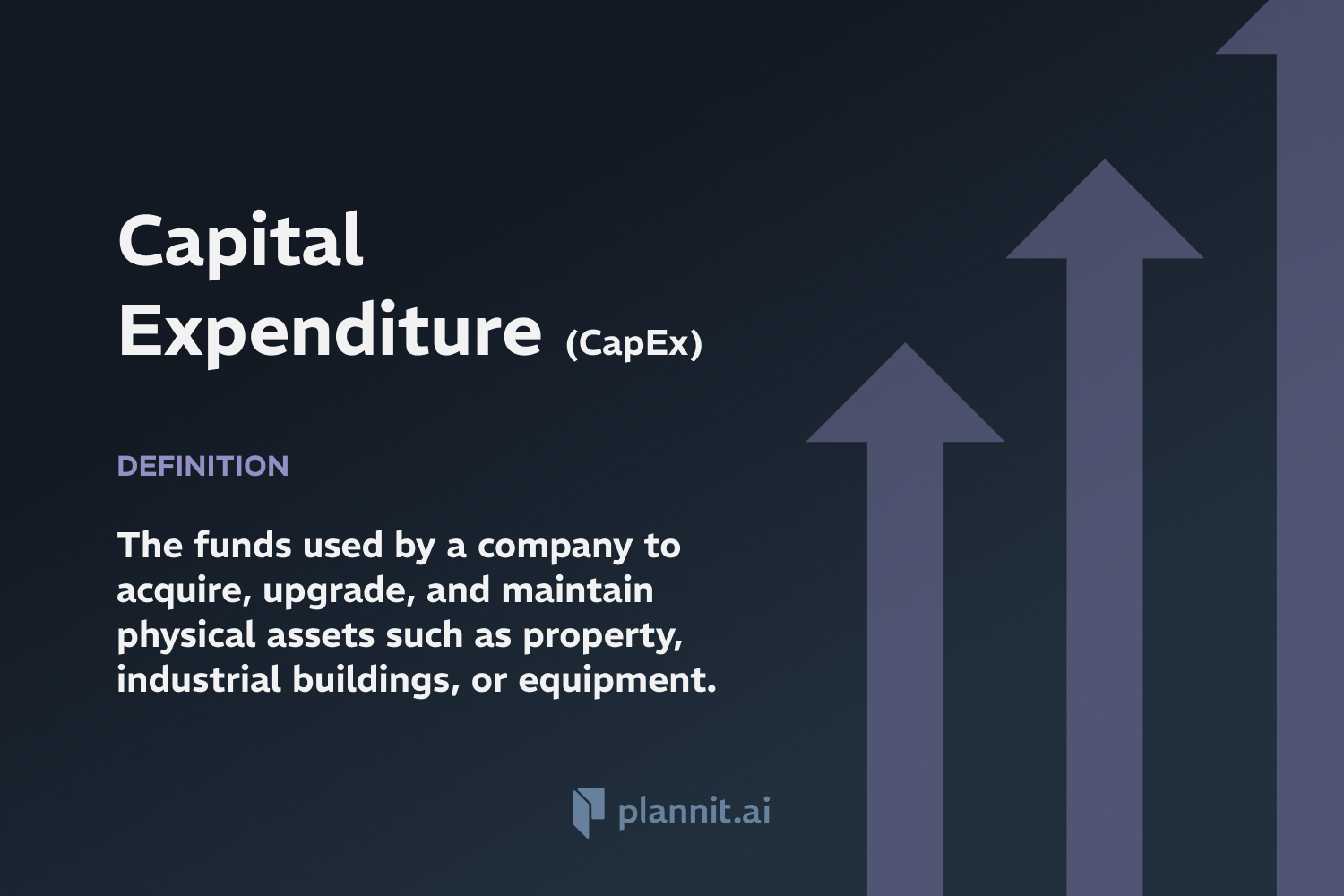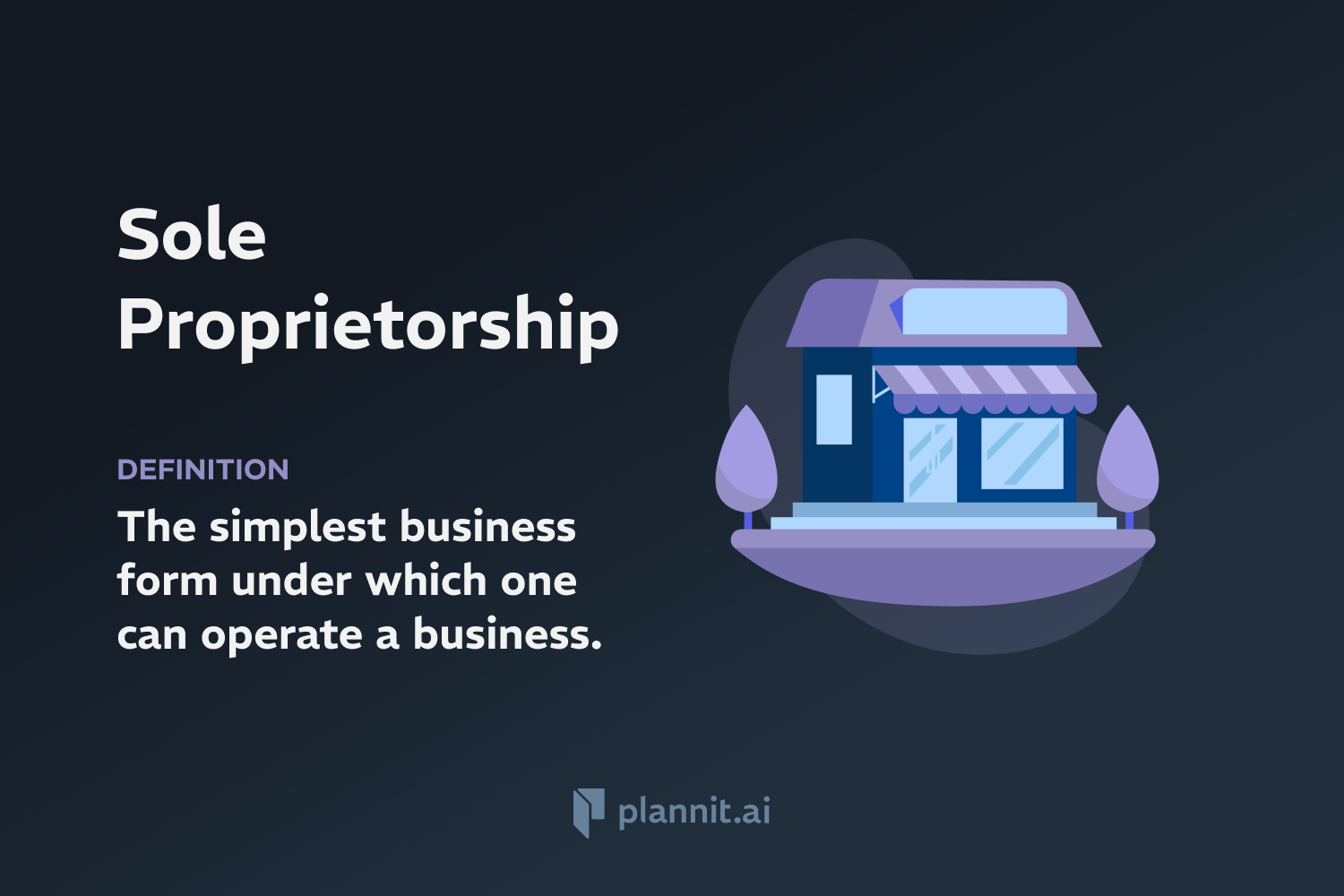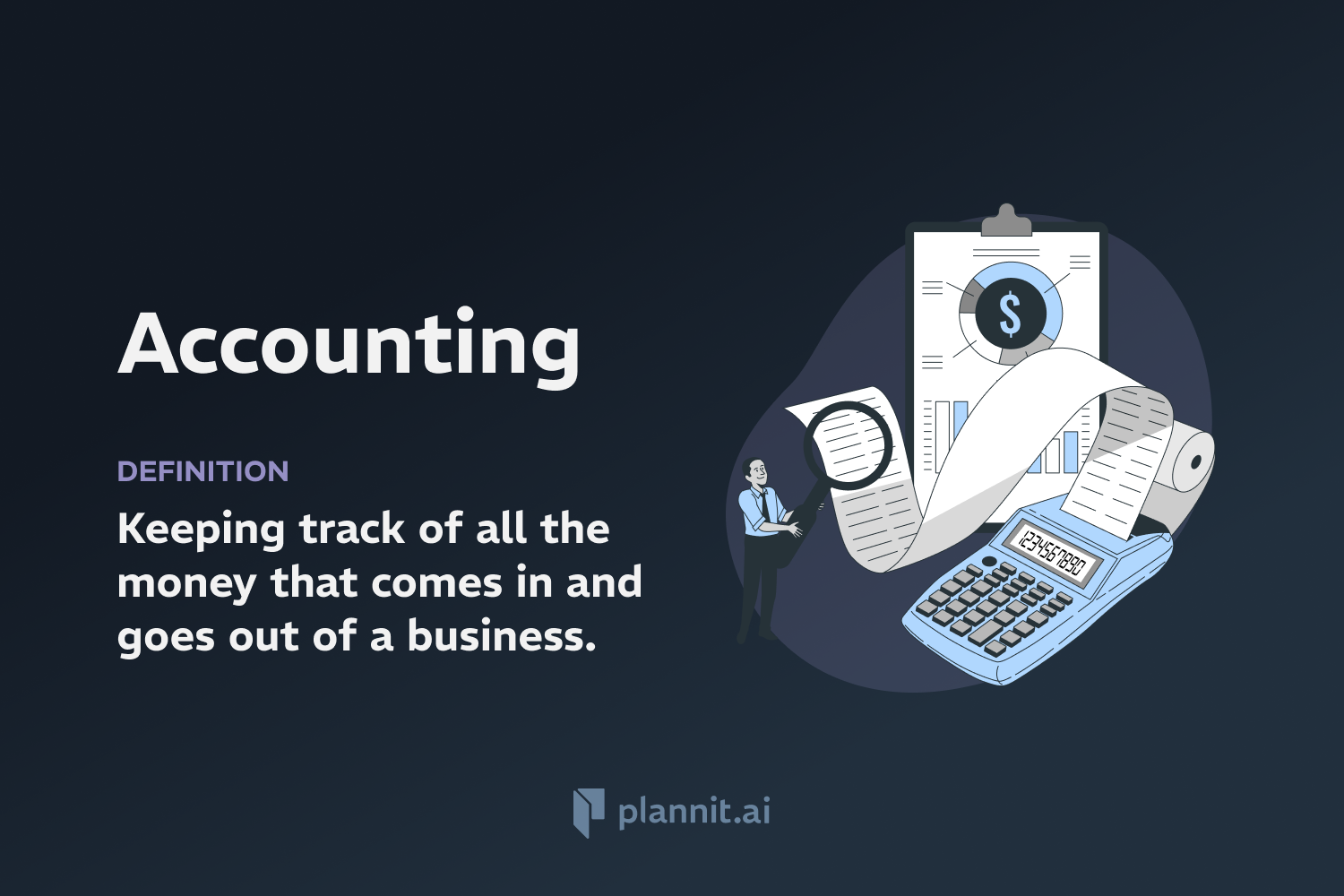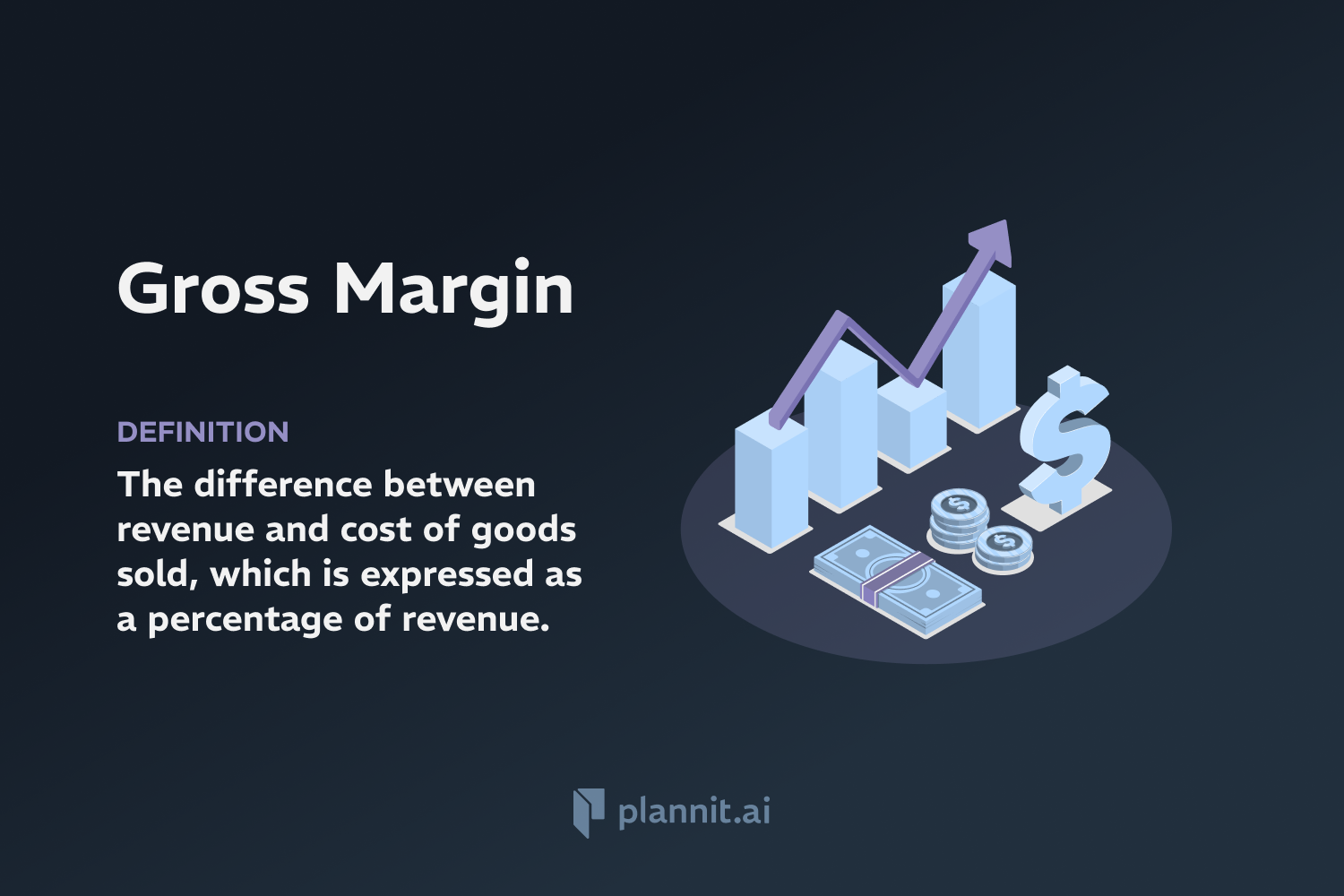Need Help With Your Business Plan?
Answer tailored questions and get a detailed business plan in minutes.
Capital Expenditure (CapEx): Definition & In-Depth Explanation

Definition:
Capital Expenditure (CapEx) refers to the funds that a company uses to acquire, upgrade, and maintain physical assets such as property, plant, equipment, or technology. This type of spending is intended to benefit a business over a long period, rather than being an immediate expense of operation.
Context of Use:
Capital expenditures are crucial in industries that rely heavily on physical infrastructure, such as manufacturing, utilities, and telecommunications. They are also important for businesses seeking to expand or improve their existing operations and capacities.
Purpose:
The primary purpose of CapEx is to invest in the future of the business. By acquiring or improving fixed assets, companies can increase their scope of operations, improve efficiency, and generate higher future economic benefits. Capital expenditures are typically separated from day-to-day operational expenses (OpEx) on financial statements, reflecting their long-term investment nature.
Example:
Manufacturing Plant: A company might invest in new machinery that increases production capacity and efficiency.
Real Estate: A business could purchase additional land for expansion or spend on major renovations to enhance property value.
Related Terms:
Depreciation: The gradual charging to expense of a capital asset's cost over its expected useful life.
Operating Expenses (OpEx): The ongoing expenses for running a product, business, or system, unlike CapEx which is for investments intended to benefit the future of a company.
Return on Investment (ROI): A performance measure used to evaluate the efficiency or profitability of an investment.
FAQs:
1. What is the difference between CapEx and OpEx?
A: CapEx refers to long-term investments in physical assets, whereas OpEx refers to the day-to-day expenses necessary for the ongoing operations of a business. CapEx typically appears on the balance sheet, and OpEx on the income statement.
2. How is CapEx funded?
A: Companies can fund CapEx through cash reserves, raising debt, issuing new equity, or through the cash generated from operational earnings.
3. Why is CapEx important for business growth?
A: CapEx is crucial for maintaining and expanding the business’s capacity, efficiency, and competitive advantage, directly impacting its future revenue generation capabilities.
4. What impacts do CapEx have on financial statements?
A: Capital expenditures appear as an increase in asset accounts on the balance sheet, which are then depreciated over their useful lives and appear as depreciation expense on the income statement.
5. How do companies decide on CapEx?
A: Decisions on CapEx are typically made based on the expected growth opportunities, potential ROI, strategic goals of the business, and the current financial condition of the company.
Get funding with a business plan that will impress investors.
Starting a New Business?



